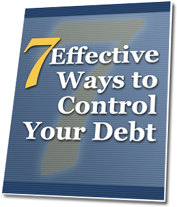Handing the Debt Off
The credit card business is one of the most competitive industries there is. You can tell that because you no doubt get dozens of invitations for new credit cards every week. That is because the only way a credit card company can continue to grow new business is to steal the business away from another credit card company. It isn’t really a business where there are a lot of new customers coming into the market. The types of accounts the credit card companies want are people who are carrying a lot of debt, who continue to pay on the debt but never pay it off and who have no history of defaulting on their loans. If that describes you, then you are on the A list for a potential customer for a credit card company.
If you have a lot of credit card debt, it really isn’t that flattering that other credit card companies want your business. Even more infuriating is when a credit card company who already has you in debt sends you offers for still more credit cards. But there may be a glimmer of light in this tough situation. You might be able to leverage you’re “A list” position with the credit world to find a way to manage your credit card debt more successfully.
Typically, if you have three or four or more credit accounts, the credit ceiling on those accounts probably have gotten pretty high. That is because, as we just reviewed, if you carry debt but pay on it, that sets a cycle in motion for the credit card companies to offer you as much debt as they think you might use so you can owe them even more money. Again, while this seems cruel and heartless, that is how these folks make their living so they have to find some way of attracting the debt of the A list customers.
But another method they also use is to offer you an attractive rate of interest to either start a new account or transfer debt from an account you have to your existing account. A common “come on” is to offer you zero percent financing which seems wonderful because in theory you could transfer all of most of your debt to the generous company and not pay any interest which would greatly speed your pay off.
Transferring balances has its good side and its negative side and you need to be smart about both. Read every word of the offer, even the small print on the back of the page because you must understand any hidden fees you might face if you accept their generosity. Almost always the zero percent or low percentage rate is for a very limited time of perhaps three or four months. In credit card land, this is a heartbeat. Then once they have your account balance of your debt built up, they can jack your rates up and you are right back where you started.
So be smart about using these kinds of offers. A great tactics is simply to transfer a fairly small amount of your debt to the zero percent offer. Transfer $1000 and then pay it off over the three to four mouth period. You win because you paid no interest and they lose because they can’t sting you with a high interest rate at the end. Also be aware of any transfer fees or membership fees if you are taking out a new card. These fees can amount to additional interest and negate much of the benefit. But if you are smart and use these offers shrewdly, they can be terrific ways for you to drive down your credit card debt surfing “come ons” from the credit cards companies in a clever fashion.

